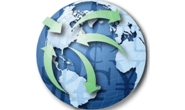Government/Policy

August 18, 2020
Commerce Considers Extending Safeguards on Imported Washers
Written by Sandy Williams
If you have been waiting for a price drop on an imported Korean LG or Samsung washing machine, you may be waiting a bit longer. The U.S. International Trade Commission is considering extending safeguard tariffs and quotas on imports of large residential washers, including those two popular brands.
Whirlpool is asking that its foreign competitors continue to be subjected to quota and tariff restrictions that were imposed in January 2018. The tariffs and quotas are based on a sliding scale. Tariffs for 2020 on large residential washers are 16 percent for the first 1.2 million units and 40 percent for those above the quota. Imports of certain washer components are also taxed at the 40 percent rate.

The unanticipated market event is the COVID-19 pandemic, which Whirlpool says is a “black swan” that is “likely to derail the domestic industry’s adjustment to import competition throughout the entirety of 2020.”
Whirlpool brands include, among others, Whirlpool, Maytag, KitchenAid, Amana, and Jennair. Other domestic manufacturers include GE Appliance, Staber Industries, Alliance Laundry Systems, and both Samsung and LG, which have established manufacturing plants in the U.S.
“At the time the safeguard remedy went into effect, the domestic industry had endured nearly a decade of predatory import behavior by Samsung and LG,” states Whirlpool in its petition. “By February 2018, the competitiveness of the domestic industry was imperiled. But as company officials testified during the midterm review, by mid-2019, Whirlpool was ‘finally seeing things change for the better.’ The Commission recognized in its monitoring report that the domestic industry was making a positive adjustment to import competition, both in terms of improved financial performance for the domestic industry and Whirlpool’s and GE’s progress in implementing their adjustment plans.”
Critics of the safeguards said the measures imposed by the Trump administration have created higher prices for consumers. Scott Lincicome, senior fellow at the Cato Institute, calls the price increases “dramatic,” costing U.S. consumers an additional $1.5 billion per year. Net revenue from the tariffs is estimated at $82 million per year.
Whirlpool posted $4.0 billion in sales for Q2 2020, a 22.1 percent decline from a year ago, which it blamed primarily on the impact of COVID-19. Demand in the U.S., however, was resilient during the quarter due to key retailers remaining open and government stimulus payments to consumers, said Whirlpool in its earnings call. Whirlpool Chairman and CEO Robert Blitzer was optimistic about stronger demand and profit in the coming quarters, noting that July and August “actually look pretty good.”
Lincicome notes that Whirlpool’s raw material costs have been impacted by Section 232 tariffs on steel and aluminum, as well as Section 301 tariffs on component imports from China. Whirlpool estimated that tariffs and raw material inflation cost the company $300 million in 2019, and he has repeatedly referred to tariffs as headwinds in earnings calls.
Most Samsung and LG washers sold in the U.S. are produced in South Carolina by Samsung and in Tennessee by LG. In the first quarter, Whirlpool held a 16 percent market share behind Samsung at 21 percent and LG at 17 percent.
“Most of the Samsung and LG washers sold in the U.S. are produced in the U.S., so the extension of the safeguard wouldn’t affect the companies’ businesses in the U.S.,” said an industry official quoted in the Korea Herald. “Such action is seen as Whirlpool’s last resort to survive in the competition.”
Ohio Rep. Rob Portman defended the safeguards in an op-ed last week: “President Trump’s decision to impose global tariff-rate quotas on finished washing machines as well as parts has led to a decline in unfairly traded imports and given Whirlpool a fair chance to compete. These measures have been critical to preserving the thousands of jobs at Clyde, and Whirlpool has taken advantage of this opportunity by investing in new products, in new technology and in its workers.”
Approximately 1,800 jobs were created as a result of the safeguard tariffs, but a 2019 study by the University of Chicago estimates each job created cost American consumers about $820,000 annually.
South Korea is currently challenging the safeguard measures at the World Trade Organization. A dispute settlement panel is expected to render a ruling in early 2021.
Commerce will hold a ruling on the extension proposal on Nov. 5, 2020.







